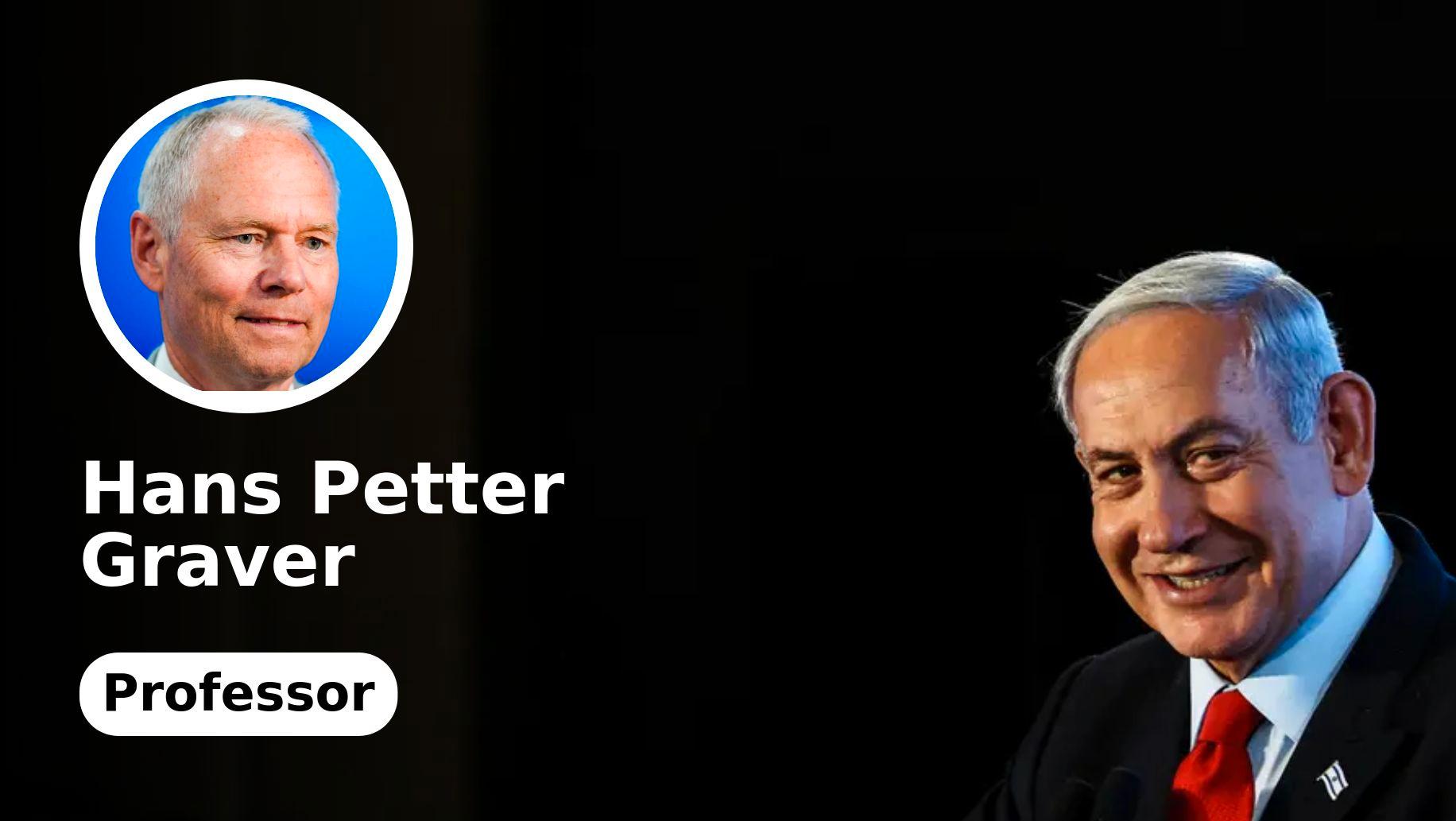Prime Minister Benjamin Netanyahu wants to introduce an illiberal democracy, writes Hans Petter Graver.
Opponents fear that religion will take an even stronger grip on people’s daily lives.
The Court is the weakest of the three powers of the State, it has neither money nor sword, wrote Alexander Hamilton before the American Revolution.
As long as the government and the courts work together, the courts have great power. Their judgments trigger both coercive power and state subsidies. But when it comes to confrontation, courts have little choice but to rely on their authority.
Such a confrontation is expected today in Israel, after that the Supreme Court decided that it will test the legality of the legislative decision depriving the courts of the power to verify whether the authorities abuse their authority. Will Prime Minister Benjamin Netanyahu and his coalition partners comply with a decision that will be unfavorable to them?
Completely unbalanced
The law, adopted by the majority of the Knesset (parliament) while the opposition boycotted the vote, deprives the Supreme Court of the possibility of overturning a decision of the authorities if it is manifestly unreasonable. The test for manifestly unreasonable decisions (clearly unreasonable) allows the judge to overturn a decision when the balance of considerations is completely unbalanced. In our country, this corresponds to what we call the doctrine of abuse of authority. This is not an option that the Israeli Supreme Court has often used. This is particularly relevant in cases of corruption, misappropriation of public funds, and unfair hiring and dismissal of public positions.
The law was passed following major protests and large-scale public demonstrations. The law is part of what Netanyahu calls “necessary reform” of the justice system.
In January, the government promoted a bunch of bills. This included rules that would guarantee political majority control over the appointment of judges, a ban on courts repealing so-called “basic laws”, the right for the Knesset to reinstate laws that the court declared unconstitutional by simple majority and politicization of the positions of judicial officials in the ministries.
Must weaken the courts
These changes are part of a plan to weaken the courts as a supervisory body and shift power to the government. The President of the Supreme Court of Israel, Esther Hayut, immediately came out abruptly against the proposals, saying that if adopted, it would deal a fatal blow to the country’s democratic identity. She believes the proposals would undermine the independence of the courts and give the Knesset an open mandate to pass laws of any content, even in violation of fundamental individual rights, without the possibility of judicial review.
Tens of thousands of people took to the streets to demonstrate against the proposals, and Netanyahu temporarily withdrew them. The ban on review of patently unreasonable decisions was later proposed and adopted as part of a more progressive strategy. This led 174,000 people took to the streets in Tel Aviv in protest.
Why different in Israel?
Defending the independence of the courts and the control of elected bodies is not often something that arouses great interest among the people or mobilizes the masses. What makes this different in Israel?

Many fear that recently introduced rights for LGBT people will be removed if Benjamin Netanyahu’s reform is implemented.
Opponents believe that Israel’s existence is threatened. As in other countries where an elected majority threatens the courts, for example in Hungary and Poland, it is about both the content of politics and the institutions of the rule of law.
The coalition that governs Israel is dominated by Orthodox clerics on one side and far-right forces on the other. The parties are united in the sense that they believe that liberal rights prevent them from implementing their policies.
Like the Hungarian Viktor Orban, they want to introduce an illiberal democracy, a government in which the elected majority would itself set the limits of the type of measures it can implement. Opponents fear that religion will exert an even stronger grip on people’s daily lives, that recently introduced rights for LGBT people will be rolled back, and that oppression of the Palestinian population will become even more widespread and relentless.
A battle of destiny
Because of Israel’s unique governance and challenges, the battle for the courts is a battle of destiny. Israel does not have a written constitution and fundamental rights can be amended and removed by ordinary legislative acts.
Rights are therefore not protected, as with us, by rules according to which changes must be made by qualified majority or according to our own procedures. In such a situation, the protection offered by the courts becomes the only protection available to the rights. If you remove judicial protection, rights are at all times at the mercy of the ruling political majority. This is particularly dangerous in a country as complex as Israel.
Israel is far from a perfect democracy and much can be said about the lack of legal protections, particularly for the Palestinian minority and the population of the occupied West Bank. But Israel remains a country that has managed to maintain a democracy in conditions where the existence of the state is threatened by external enemies, in a state of more or less continuous war.
During the pandemic, we have all recently seen how fragile our democratic rules of the game and our fundamental rights are when society is threatened. Israel has maintained a liberal democracy under persistently much more difficult conditions. The corrective role of the Supreme Court to the civil and military authorities is an important explanation for the success of this initiative. If the courts are weakened, democracy risks being crushed by the logic of the state of emergency.
A unique story
The stage is set for a showdown between Netanyahu and the Supreme Court. Israel’s Supreme Court has a unique history in an international context, precisely in the way it has set limits on authorities in extreme situations. Until now, other state powers accepted that the Supreme Court defines the rules of the game and acts as arbiter. Now Netanyahu and his government want to change that, and they themselves set the rules and draw the boundaries.
Under normal circumstances, this is a dispute that the court is bound to lose.
Under normal circumstances, this is a dispute that the court is bound to lose. The verdict of history is clear: time and again the rule of law has had to lose to authorities determined to set aside the basic demands of equality before the law and the recognition of legal limitations on their authority. In most cases, the referees didn’t even accept the fight.
But Israel is different. The judges benefit from a large popular mobilization behind them. This could give them the courage to make a decision against Netanyahu. Will Netanyahu and his coalition partners have the courage to confront it, and if so, what will be the outcome?

“Hardcore coffee specialist. Unable to type with boxing gloves on. Devoted internetaholic.”






